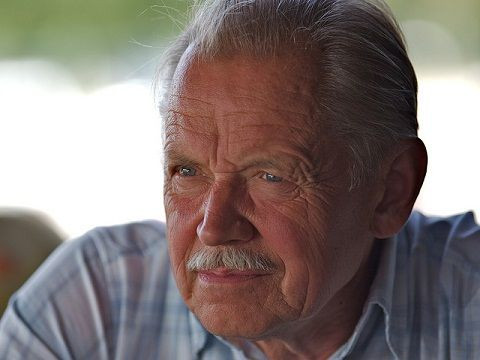What Is Heat Stroke?: Recognizing Symptoms In The Elderly

Recognizing Heat Stroke
According to the Centers for Disease Control and Prevention (CDC), heat stroke is the most serious heat-related illness.
Heat stroke occurs when the body is unable to regulate temperature and is unable to cool down. The body loses its ability to sweat and temperature can rapidly rise to 106°F or higher. If left untreated, heat stroke can lead to death or permanent disability.
Senior citizens (aged 65 years and older) are particularly more vulnerable to hot weather. There are many reasons for this, including obesity and existing health problems in some individuals. Seniors with heart disease, for instance, might find it more difficult for their body to circulate blood properly and dissipate heat.
Or seniors who are taking certain medications, including blood pressure and heart medicines, allergy medications, thyroid pills, or diuretics (water pills), might also find it hard to keep cool in extreme heat. Diuretics, for example, can cause water loss and worsen the dehydrating effects of high temperatures.
A milder form of heat-related illness is heat exhaustion. This occurs when your body has been exposed to high temperatures. Symptoms may include dizziness or weakness. You may also get dehydrated and experience headache.
Signs & Symptoms
Warning signs of heat stroke may include:
- extremely high body temperature — above 103°F
- red, hot, or dry skin (with no sweating)
- rapid, strong pulse
- paleness
- fainting
- dizziness
- nausea
- throbbing headache
- confusion
- cool, moist skin
- unconsciousness
Risks of Heat Stroke: What They Can Do
Many seniors who live on their own are unable to venture far from their homes or apartments. If the power goes out and air conditioning or fans don't work, elderly residents are much more vulnerable to rising indoor temperatures and may be unable to easily leave for a cooler environment.
Heat-illness prevention relies on making efforts to stay cool and comfortable. Older adults can take precautions including:
- sponging off with a cool towel
- rubbing ice cubes — wrapped in a washcloth — over wrists, face, and neck (even a pack of frozen veggies will do)
- eating lightly and drinking plenty of fluids, while avoiding alcohol and caffeine
- making use of portable, handheld, battery-operated fans
- escaping extreme heat for a more comfortable and cooler location, if possible
- staying in the coolest place as possible and avoiding too much activity
- keeping the shades or curtains drawn to avoid too much sunlight
- keeping windows open to allow air circulation
- wearing loose, light clothing
Risks of Heat Stroke: What You Can Do To Help
It's important to encourage older individuals to drink plenty of fluids. Regardless of their activity level, older adults should drink cool, nonalcoholic beverages to help prevent heat-related illness.
Here are tips on what you can do to help an older family member or neighbor.
- Seek shade. Get the person to a shady area as quickly as possible.
- Cool the person rapidly. Depending on location, you can alleviate heat-stress symptoms by doing the following:
- immersing individual in a tub of cool water
- placing the person in a cool shower
- spraying or sponging the person with cool water
- wrapping the person in a cool, wet sheet and fanning vigorously
- Monitor body temperature. Continue cooling efforts until the body temperature drops to 101°-102°F.
- Avoid alcohol. Do not give the person alcohol to drink.
- Call for help. Seek medical assistance as soon as possible. Call the hospital emergency room if emergency medical personnel are delayed.
More Tips On Keeping Cool
It is crucial to stay in touch with elderly relatives and neighbors during a heat wave.
- Remember, heat stroke may begin with flu-like symptoms including:
- loss of appetite
- nausea
- light-headedness
- muscle cramping
- Symptoms can develop rapidly or slowly over a period of days.
- A person may not even be aware of feeling hot or thirsty. That's why it is important to pay close attention to the signs and symptoms of heat-related illness in elderly loved ones and friends.



























